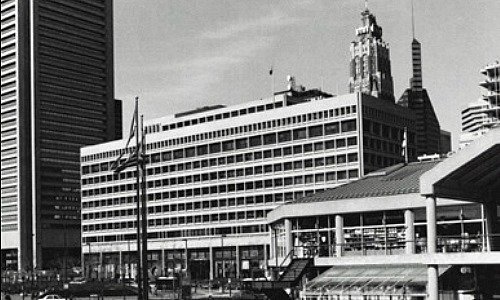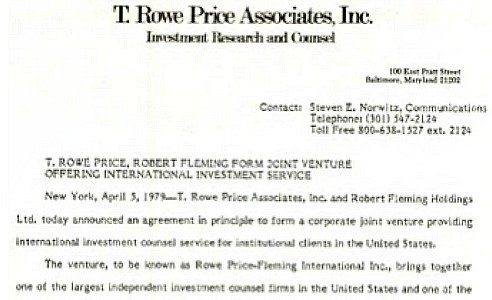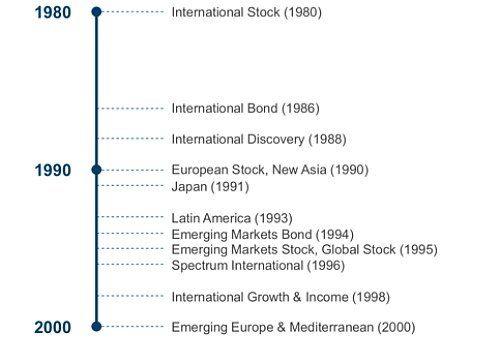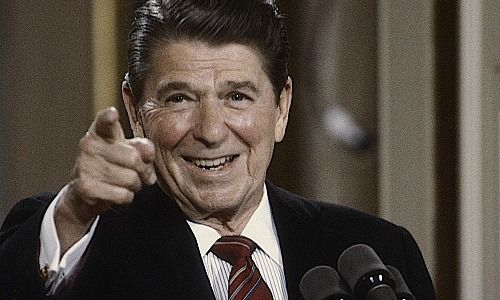Asset Management: The Journey Goes On
With the help of historical documents, provided by the archives of T. Rowe Price, this third part of an exclusive five-piece series for finews.asia readers summarizes some of the most important events within the asset management industry.
While the economy was booming in the 1950s and 1960s, the following two decades experienced several periods during which inflation rose simultaneously with unemployment. At the same time, the financial industry and especially asset management did not stand still but expanded abroad.
Before 1971, the annual inflation rate in the U.S. had never exceeded 1,6 percent. One major financial incident during the second half of the 1970s, however, changed the situation. Influenced by the oil price shock of 1973, the economic growth suddenly slowed down in almost all parts of the world.
High Unemployment Rate
This trend lasted well into the first half of the 1980s. By 1974, the annual inflation rate in the U.S. rose even further and finally went over 10 percent. Moreover, in 1979, 1980 and 1981 the annual inflation rate repeatedly spiked at a similarly high percentage grade.
This fact had an effect on the work market. More and more people lost their jobs. Therefore, by 1982 the unemployment rate in the U.S. was at 10 percent.

(T. Rowe Price headquarters in Baltimore, as seen in 1986)
Discovering New Markets
«While it is hard to imagine today, in the early 1980s U.S. clients imagined investing overseas as a highly risky and unusual, if not outright dangerous, notion. Yet it was clear to us that the merits were compelling,» stated the now-retired David Testa, former Vice President at T. Rowe Price.
However, in the 1970s, T. Rowe Price decided to expand its business abroad. In 1970, before the inflation rate would spike at 10 percent, T. Rowe Price founder, Thomas Rowe Price, said in an interview with the «Baltimore Sun», he believed that «accelerated inflation will be both the nation’s and the investor’s biggest problem during the 1970s.»
Historical Document
In 1979, T. Rowe Price went international and established a joint venture with U.K. bank Robert Fleming Holdings. Testa noted in the same year: «We expect international investing to become a major market over the next few years.»
The joint venture received the name Rowe Price-Fleming International. At that time, T. Rowe Price had about «$6 billion under asset and management», states a historical document, courtesy of the archives of T. Rowe Price.

(T. Rowe Price establishes a joint venture with Robert Fleming Holdings)
While the number of employees rose from 160 in 1970 to 1,000 at the end of the 1980s, the London team was «fishbowl» – this term referred to the glass-walled area they worked in – small-sized, but experienced, explains Emily Davidson, Archivist and Brand Asset Manager at T. Rowe Price.
Stayed for Decades
It focused on international research, maintaining good client relationships and cooperation with other global offices. Davidson further says: «Many of the employees of the joint venture stayed with T. Rowe Price for decades, some are still with the firm today.»
Other asset management firms shared David Testa’s view on international investing and some expanded earlier than T. Rowe Price. J.P. Morgan, for instance, established a joint venture in Asia in 1970. HSBC started conducting asset management in Hong Kong, Singapore, Sydney, Tokyo and London in 1973.

(A number of funds were created during the joint venture with Robert Fleming Holding)
Significant Political Changes
The 1980s were a decade full of change. The beginning of the 1980s was characterized by the Cold War. On January 4, President Jimmy Carter announced the embargo on the sale of grain and high technology to the Soviet Union. The embargo was a result of the Soviet Union’s invasion of Afghanistan.
One year later, President Ronald Reagan (pictured above) took office and the largest tax cut legislation – as part of the so-called «Reagan revolution» – thus far proposed in U.S. history passed both houses. As a result, taxes were reduced by over $750 billion over the next five years.
Political Move
For asset management corporations, this political move resulted in a new opportunity to find clients in the U.S. and to expand their business at home while establishing more subsidiaries abroad. Countries in Africa and South America, that had suffered economically because of the crises at the end of the 1970s and the beginning of the 1980s, started to recover.
The economy of major Asian states, which had been mostly resilient during that time, grew more. Both areas of the globe offered asset managers further prospects.
Moreover, in 1989 the German wall, dividing the east and west part of the country, fell. This opened a world of economic opportunities not only for Germany itself but for many other nations as well. A new market opened that would make many investors even richer than before.
- In the coming years, T. Rowe Price and other firms would recognize all these opportunities and spread their businesses further across the planet. In part 4 of this series, the readers of finews.asia will discover how the asset management industry progressed throughout the 1990s and 2000s. Stay tuned!
This material is being furnished for general informational purposes only. The material does not constitute or undertake to give advice of any nature, including fiduciary investment advice, and prospective investors are recommended to seek independent legal, financial and tax advice before making any investment decision. T. Rowe Price group of companies including T. Rowe Price Associates, Inc. and/or its affiliates receive revenue from T. Rowe Price investment products and services. Past performance is not a reliable indicator of future performance. The value of an investment and any income from it can go down as well as up. Investors may get back less than the amount invested. The material does not constitute a distribution, an offer, an invitation, a personal or general recommendation or solicitation to sell or buy any securities in any jurisdiction or to conduct any particular investment activity. The material has not been reviewed by any regulatory authority in any jurisdiction. Information and opinions presented have been obtained or derived from sources believed to be reliable and current; however, we cannot guarantee the sources' accuracy or completeness. There is no guarantee that any forecasts made will come to pass. The views contained herein are as of the date noted on the material and are subject to change without notice; these views may differ from those of other T. Rowe Price group companies and/or associates. Under no circumstances should the material, in whole or in part, be copied or redistributed without consent from T. Rowe Price. The material is not intended for use by persons in jurisdictions which prohibit or restrict the distribution of the material and in certain countries the material is provided upon specific request. It is not intended for distribution to retail investors in any jurisdiction. Switzerland - Issued in Switzerland by T. Rowe Price (Switzerland) GmbH, Talstrasse 65, 6th Floor, 8001 Zurich, Switzerland. For Qualified Investors only. © 2019 T Rowe Price. All rights reserved. T. ROWE PRICE, INVEST WITH CONFIDENCE and the Bighorn Sheep design are, collectively and/or apart, trademarks or registered trademarks of T. Rowe Price Group, Inc.



























